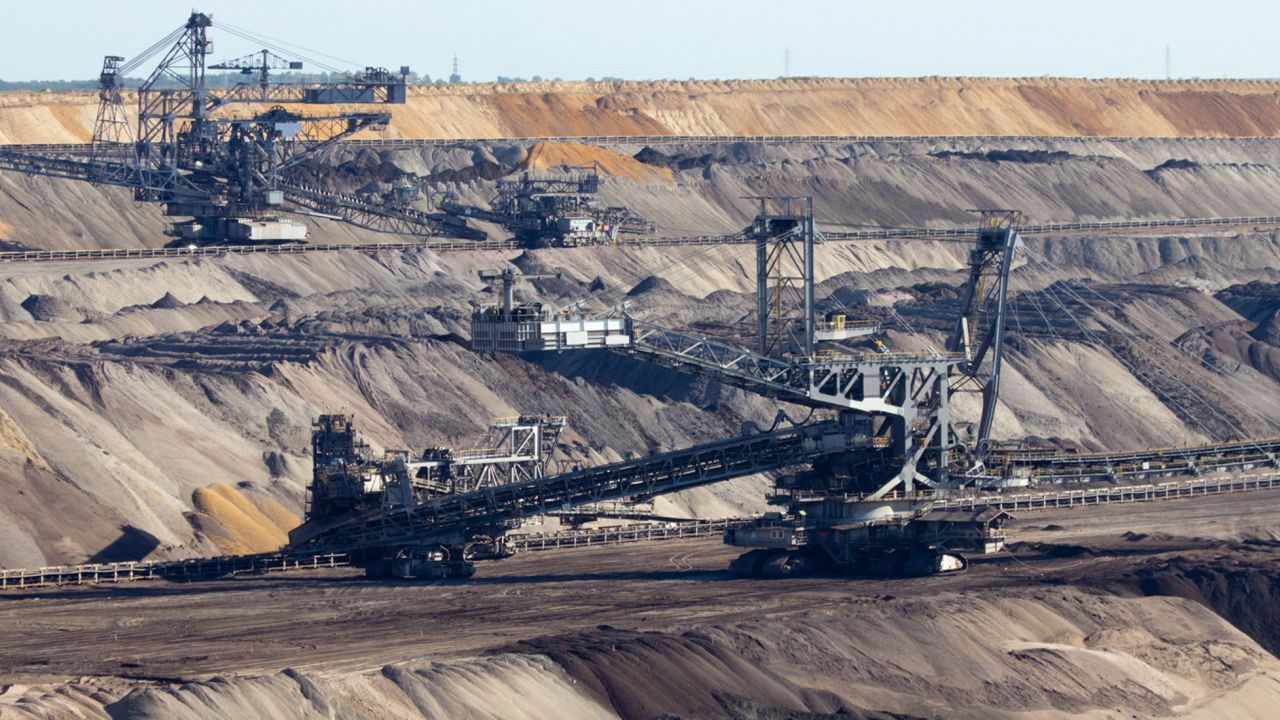
Since the Sagebrush Rebellion of the late 1970s, industries that profit by taking resources from Western public lands – logging, oil and gas drilling, and mining – have stirred up opposition to increased environmental regulation by painting their critics as outsiders – do-gooders from Washington, D.C., trampling on the Rocky Mountain West’s proud heritage and hardscrabble economy.
In its current campaign to block reform of the archaic 1872 General Mining Law, which allows mining companies to extract fortunes in precious ores without paying royalties or providing for cleanup of abandoned mines, the mining industry is following the same script.
In February, for example, after Environmental Working Group (EWG) found that uranium mining claims are soaring within 5 miles of the Grand Canyon and other national treasures, a spokesman for the National Mining Association told the Associated Press that reformers are “against those communities that depend on mines for their livelihood.”
But this time the tactic isn’t working.
As reform measures gather momentum in Congress, the New West of booming cities and rural idylls – its economy built on high-tech and tourism – is demanding more protection from the devastated landscapes, toxic tailings and water contamination that accompany hardrock mining. Hunters, fly fishermen, climbers, backpackers and the outdoor recreation industry are joining urban planners, health officials, economists, and other Westerners in saying it’s time to bring a relic of the Old West into the 21st Century.
In one of the most significant signs of the sea change in Western public opinion, the editorial pages of the region’s leading newspapers – some of which served as virtual house organs for the Sagebrush Rebellion and the later Wise Use movement – are leading the calls for reform. Environmental Working Group’s map of more than a dozen editorials from Western newspapers shows just how much things have changed.
The General Mining Act of 1872 “was written in a different era, when it was a national priority to encourage settlement of the West,” wrote The Denver Post, which still calls itself the Voice of the Rocky Mountain Empire. “Most everything has changed dramatically since then – except this law.”
The Salt Lake Tribune said the 1872 Mining Law “echoes a bygone era when exploitation of then-vast natural resources was the top priority of an expanding nation.” Now, however:
It enjoys such favoritism and freedom from regulation that the hundreds of thousands of new mining claims staked on public lands in the West in recent years have the potential to do irreparable damage. Even lands close to national parks and monuments are threatened by the digging, poisoning and trampling that accompany the search for gold, copper and uranium.
Faced with a modern "land rush" brought on by higher prices for these precious metals, Congress should reform the antiquated mining law that governs this industry - now. If it does not act, Americans will continue to lose not only royalties but the use of millions of acres of public lands for recreation and the beauty, solitude, clean air and cultural treasures these lands provide.
What’s striking, in comparison to the us-vs-them rhetoric that fueled the Sagebrush Rebellion, is that the Tribune did not frame the issue as one of Western values coming under attack from inside the Beltway, but as the need to protect the Western wonders that belong to all Americans. In Phoenix, The Arizona Republic – which has published three separate pro-reform editorials – also refused to play the outsider card, and made it clear that Arizonans’ best interest is the same as the rest of the nation’s.
You're giving away gold, silver, copper and uranium.
You and every other American. Mining operations are taking millions of dollars' worth of minerals from federal lands without paying a penny in royalties.
Zero.
Zip.
A big fat goose egg.
Arizona is a major copper-mining state. We all need the products that come from mines. But it's time to change the terms of a law that went into effect when Ulysses S. Grant was president.
In Tucson, the state’s second-largest paper, The Arizona Daily Star, said the U.S. Forest Service’s approval of uranium exploration near the Grand Canyon (since overturned by a federal judge) was “a radioactive idea” that is powerful evidence that tighter restrictions must be enacted . . . [and of] the critical need to modernize the General Mining Act of 1872.” The Arizona Republic said: “Allowing mines next door to the Grand Canyon would be one of the seven blunders of the world.”
Another of the industry’s arguments is that tougher mining laws will increase American dependence on foreign minerals. In March, the National Mining Association placed full-page ads in seven Mountain West newspapers saying mining law must “Keep U.S. mining competitive and provide a secure source of minerals to meet our needs—not make us more dependant [sic] on foreign suppliers.” But The Tucson Citizen, calling the proposed uranium mines a “calamity,” sharply rejected that argument: “We have no security if our government is willing to sacrifice the health of our people, the purity of our aquifer and the sanctity of Arizona's crown jewel to a foreign mining firm.”
It’s true that in some quarters the old animosity remains. The Las Vegas Review-Journal said the ranks of the campaign for reform read “like an honor roll of the anti-capitalist branch of the environmental movement, their Web sites full of glowing references to how this ‘reform’ will allow federal land managers to consider other possible uses for the ‘special places’ where greedy miners hope to rape the earth.”
The Review-Journal’s opinion is no surprise, coming from an editorial page that has consistently opposed mining reform. But in northern Nevada, where mining is more important to the local economy than almost anywhere else, the Reno Gazette-Journal said the clock is ticking on Senate Majority Leader Harry Reid’s resistance to reform:
[T]he time has come for the mining industry in Nevada and the small communities who prosper from their largesse to prepare for some changes. Reid can tamp down a [mining reform] bill in the Senate for the time being, but you have to wonder how long he can argue in favor of an antiquated law that hasn't been changed in 135 years.
The common theme of the editorials is clear: The West has changed and the mining industry must change with it. In 136 years, as pick-and-shovel prospecting has given way to the environmental devastation of large-scale industrial mining, the West’s values have changed. No longer are the mountains, forests and deserts viewed as obstacles to progress that must be conquered to scratch out a hard living, but invaluable and irreplaceable resources that are key to prosperity and to keeping the West a special place. In another of the three editorials it has published calling for mining reform, The Arizona Daily Star said:
Outdoor recreation, conservation and habitat protection were not priorities when the 1872 law was written, but they are today. Many Americans consider adventure travel and ecotourism, such as sightseeing and bird-watching, good uses of the land. Ecotourism is a major factor in the economy of Southern Arizona, one of the world's most fertile birding habitats. The mining law should be updated to reflect modern attitudes that place a greater value on wilderness and natural beauty.
The Arizona Republic agreed:
In the 19th century, no one could imagine that federal land would be valuable for such non-mining uses as recreation, habitat, scenery, archaeology and major watersheds. We don't live in the wide-open Wild West, where Maricopa County's first sheriff won hands down, because a shoot-out between the other two candidates had left one dead and forced the other to withdraw.
The 1872 mining law is long overdue for a change.
Although the prospects for mining reform are better now than in many years, they are still uncertain.
The House has passed a bill by Rep. Nick Rahall of West Virginia, a tough and comprehensive measure that would for the first time protect our national treasures and communities, implement royalty payments for minerals taken from public lands, and use the money to clean up toxic abandoned mines. In the Senate, the Energy and Natural Resources Committee is working on its own bill, and Sen. Dianne Feinstein of California has introduced separate legislation to fund the cleanup of abandoned mines. Senate Majority Leader Reid of Nevada has in years past shielded the mining industry from needed reforms, but has expressed a willingness to consider changes this time around.
But whatever the outcome, the fact that this time Westerners are the loudest voices calling for reform signals sundown for the Sagebrush Rebellion. In the clash between Old West and New West values, the winner is already clear.
